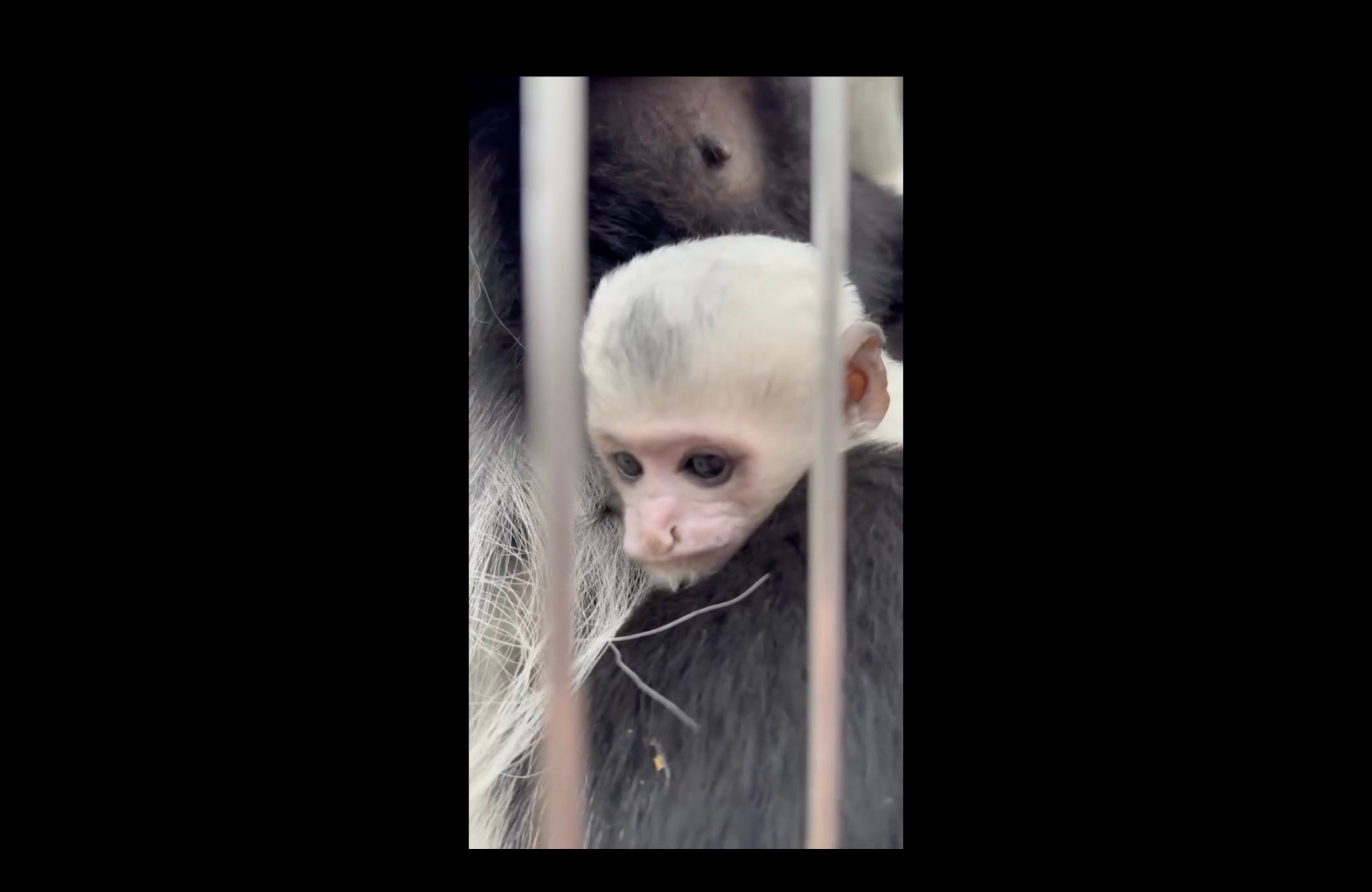Tennessee zoo throws gender reveal party for its newest monkey baby
The Memphis Zoo named the infant colobus monkey Binx
Tennessee’s Memphis Zoo held a gender reveal party this week for Binx, the infant colobus monkey.
The zoo posted an adorable video on social media of the family sharing food together. In it, the monkeys rifle through a box with light blue tissue paper and a gift bag, revealing little Binx is a boy. Light pink and blue streamers hang around the enclosure as the monkeys move around.
“With help from his big brother Rigby, dad Raj, and new friend Zuri, the gender reveal party was fun for the whole group,” the zoo said. “Binx was a little shy at first when he found out all the celebration was for him, but with mom Abana holding him close, he soaked in ALL the love.”
The zoo announced Binx’s birth earlier this month.
“Abana surprised us with this little bundle of joy during the move,” the zoo said, noting they had made some updates to their night house.

“The whole troop is back in their home as of today, and if the weather warms up, you might catch them out exploring their habitat. Keep an eye out for the newest (and tiniest) member of the family. Name and gender reveal coming soon!” it said then.
Previously, the zoo only had four of these monkeys.
Earlier this year, Raj escaped containment briefly after bending the door on his transport crate while being moved from the night house to the zoo hospital, although he stayed close to his family during the incident. The zoo closed off the area to guests and staff were able to safely recapture him.

While multiple species of colobus monkeys are endangered, the eastern black-and-white colobus are of least concern. Also known as colobus guereza, they get their name from the Greek word meaning docked, referencing their stump-like limbs. They live in troops of up to 15 individuals, usually including a dominant male.
In the wild, they’re found in the forests of Central Africa. They’re recognizable by their long black hair and the white hair on their shoulders. Colobus monkeys are smaller in size and weigh between 12 and 30 pounds. The herbivores live for up to 20 years in the wild and a decade longer in human care, according to the San Francisco Zoo.
Every form of red colobus monkey is threatened with extinction.
Join our commenting forum
Join thought-provoking conversations, follow other Independent readers and see their replies
Comments
Bookmark popover
Removed from bookmarks